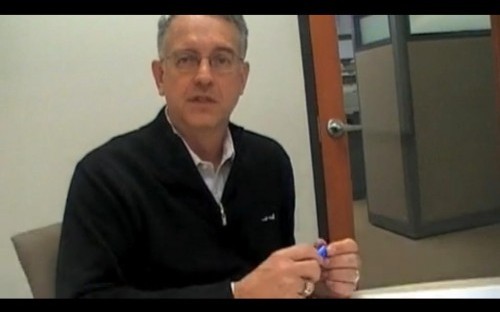Peter DiGiammarino is the go-to guy for private equity firms who want to grow technology firms in their portfolios. Most recently he was CEO of Virginia-based firm Compusearch, appointed by owner Carlyle Group. He served there for five years.
Carlyle Group sold its stake in Compusearch in June 2010, making DiGiammarino a wealthier man in the process (the sums are undisclosed), and this is one of the points he wants to make to today’s bright young MBA students.
A self-described “deal-oriented operating guy”, DiGiammarino firmly believes that operations is “an interesting, lucrative, and responsible” career path for the current crop of MBAs.
“So many top students want to pursue the finance track because that is the one that grabs all the glitz and glory, but operations adds more value and is more available to more people and will help the world more if we get more top folks interested in it,” he says.
He isn’t interested in the private equity model that has attracted popular criticism, in which “The idea is to simply lever the firm up with as much debt as possible, run the firm profitably, pay down the debt, and repeat.
“If you run the numbers you will see that this is indeed a profitable way to go,” says DiGiammarino, “But if you can grow the firm along the way and increase its value you can do much, much better… The second interests me… the first doesn’t interest me at all.”
In the video posted below, DiGiammarino explains how private equity investors and their management teams can grow a firm to make an alpha return on their equity. A cautionary note, however: the video reflects the mechanics of an ideal scenario in a hot market for money, lending, and talent. The real parameters for debt level and management’s cut vary considerably based on the economy and the market and on the scale and stage of venture evolution.
For example, in today’s market in a $50m deal debt would likely match equity. And in a deal that large the management team share may be closer to 10 per cent of equity.
As well as running companies hands-on, DiGiammarino offers consulting and advisory services to private equity investors through his company IntelliVen. Note, however: he doesn’t position himself as a “turnaround guy.” Rather, he works with firms that are underperforming relative to their potential, to help them meet that potential.
Reading further into DiGiammarino’s story, wearing an operations hat has led to a lasting career advising a variety of firms on how to meet their potential, and sharing in private equity returns that way.
As DiGiammarino points out, it is only in the start-up phase that a firm needs a CEO with intimate industry knowledge.
“As the venture grows, what is needed from the CEO changes to be more delegating, team-building, coaching, and strategy-setting.” It’s at this stage that many private equity firms invest, and bring in trusted operations guys to run the companies in return for a slice of equity.
{{video:embed url="https://www.youtube.com/watch?v=DrOdmK6IZnc"}}
RECAPTHA :
ae
d8
e0
46







